Understanding ADHD and the Search for Natural Support
Attention-deficit/hyperactivity disorder (ADHD) is a complex neurodevelopmental condition that affects both children and adults, characterized by persistent patterns of inattention, hyperactivity, and impulsivity. Although traditional pharmaceutical treatments, such as stimulant medications, have long been the gold standard for managing ADHD symptoms, many individuals seek alternative or complementary approaches to support focus, enhance mental clarity, and improve overall quality of life. This growing interest in holistic solutions has led to the exploration of herbs traditionally used to enhance cognitive function and emotional balance. Within this realm, the search for the best herb for ADHD highlights a broader fascination with natural mind boosters that aim to support brain health without the side effects often associated with prescription medications.
You may also like: Where to Buy Bacopa Monnieri: How to Find Quality Supplements for Cognitive and Memory Support
As scientific inquiry into herbal medicine deepens, researchers have uncovered a number of botanicals that exhibit promising neuroprotective, adaptogenic, and cognitive-enhancing properties. These natural mind boosters offer compelling potential not only for individuals with ADHD but also for anyone seeking to optimize their mental performance. This article will delve into the evidence supporting the use of specific herbs for ADHD, explain how they may function as brain boosters, and provide thoughtful insights into how these natural approaches can fit into a broader strategy for cognitive health and well-being.
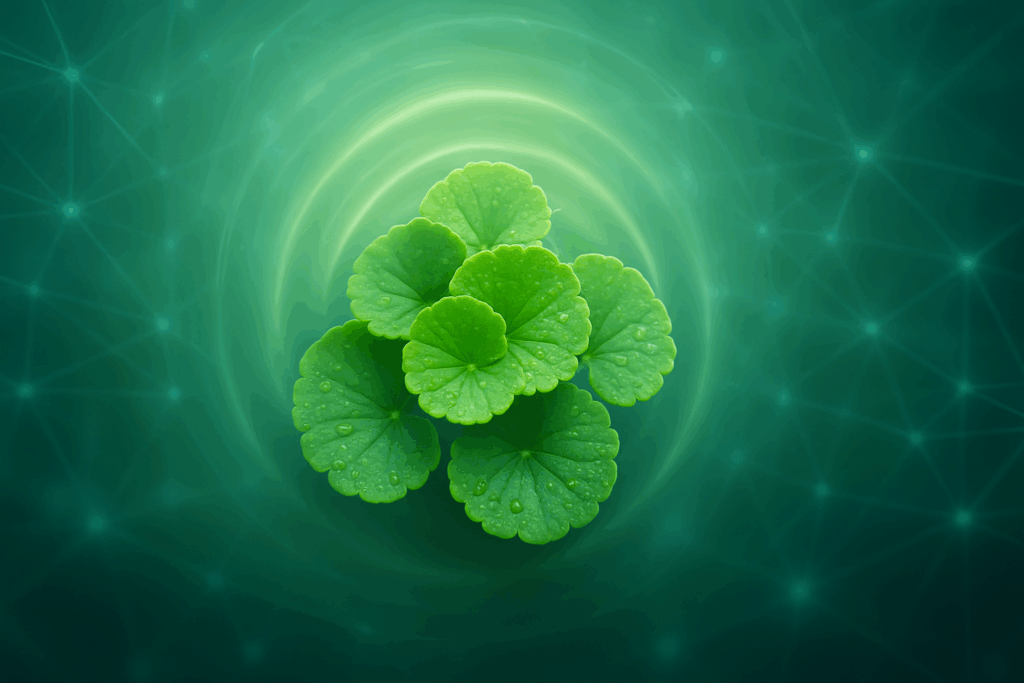
The Concept of Mind Boosters and Brain Boosters: What Does Science Say?
The terms “mind booster” and “brain booster” are often used interchangeably to describe substances that enhance cognitive performance, improve memory, sharpen focus, and support emotional resilience. While the marketing of these products sometimes overstates their benefits, there is genuine scientific interest in identifying natural compounds that can positively influence brain function. In the context of ADHD, where attention regulation and executive function are typically impaired, the appeal of natural mind boosters becomes particularly compelling.
Scientific studies have shown that certain herbs possess properties that may address the underlying neurochemical imbalances associated with ADHD, such as dysregulations in dopamine and norepinephrine systems. Some herbs act as adaptogens, helping the body adapt to stress, which can in turn mitigate the anxiety and emotional volatility often experienced by individuals with ADHD. Others support cognitive function by enhancing cerebral blood flow, protecting neurons from oxidative damage, or modulating neurotransmitter activity. When evaluating any natural mind booster, it is essential to prioritize evidence-based options that demonstrate both efficacy and safety, ensuring that claims are grounded in credible research rather than marketing hype.
Criteria for Evaluating the Best Herbs for ADHD
Determining the best herb for ADHD is not a straightforward process, as individual responses to herbal treatments can vary significantly based on genetic factors, symptom profiles, and lifestyle variables. Nevertheless, several key criteria can guide the selection of appropriate herbs for cognitive support. First, scientific evidence should support the herb’s effectiveness in enhancing attention, impulse control, or emotional regulation. Peer-reviewed clinical trials, meta-analyses, and systematic reviews provide the most reliable data.
Second, the herb should demonstrate a favorable safety profile, with minimal risk of adverse effects or interactions with commonly prescribed ADHD medications. Safety is especially critical when considering natural mind boosters for children or adolescents, whose developing brains may be more sensitive to both beneficial and harmful influences. Third, the herb should ideally offer broader cognitive and emotional benefits beyond symptom management, supporting long-term brain health, resilience, and adaptive functioning. Finally, practical considerations such as availability, cost, and ease of use also play a role in determining the best herb for ADHD.

Bacopa Monnieri: A Traditional Mind Booster with Modern Evidence
Bacopa monnieri, also known as Brahmi, is a revered herb in traditional Ayurvedic medicine, prized for its cognitive-enhancing and adaptogenic properties. Modern scientific research has validated many of these traditional uses, identifying Bacopa as a potent brain booster capable of improving memory, attention, and information processing speed. In individuals with ADHD, Bacopa’s neuropharmacological effects may be particularly beneficial.
Several studies have demonstrated that Bacopa supplementation can lead to significant improvements in cognitive performance, particularly in tasks requiring sustained attention and working memory. Bacopa appears to exert its effects by modulating cholinergic systems, enhancing antioxidant defenses in the brain, and promoting synaptic communication. These mechanisms align closely with the needs of individuals with ADHD, who often struggle with attentional control and cognitive flexibility. Moreover, Bacopa is well-tolerated in most individuals, making it a promising natural mind booster for both children and adults seeking complementary ADHD support.
Ginkgo Biloba: Enhancing Cerebral Blood Flow and Cognitive Function
Ginkgo biloba, one of the oldest living tree species on earth, has been used medicinally for thousands of years. Its standardized extract, EGb 761, has been extensively studied for its effects on cognitive function, particularly in conditions involving impaired blood flow to the brain. Emerging evidence suggests that Ginkgo may also hold promise as a supportive therapy for ADHD.
The mechanisms underlying Ginkgo’s brain-boosting effects include vasodilation of cerebral arteries, enhanced glucose uptake in neurons, and protection against oxidative stress. These actions may translate into improved attention, executive function, and emotional regulation, areas typically compromised in ADHD. Some small clinical trials have reported modest benefits of Ginkgo supplementation in reducing ADHD symptoms, particularly when combined with conventional treatments. However, more large-scale studies are needed to confirm these findings. As a natural mind booster, Ginkgo offers a multifaceted approach to cognitive enhancement, making it a worthy candidate for individuals exploring herbal strategies for ADHD support.
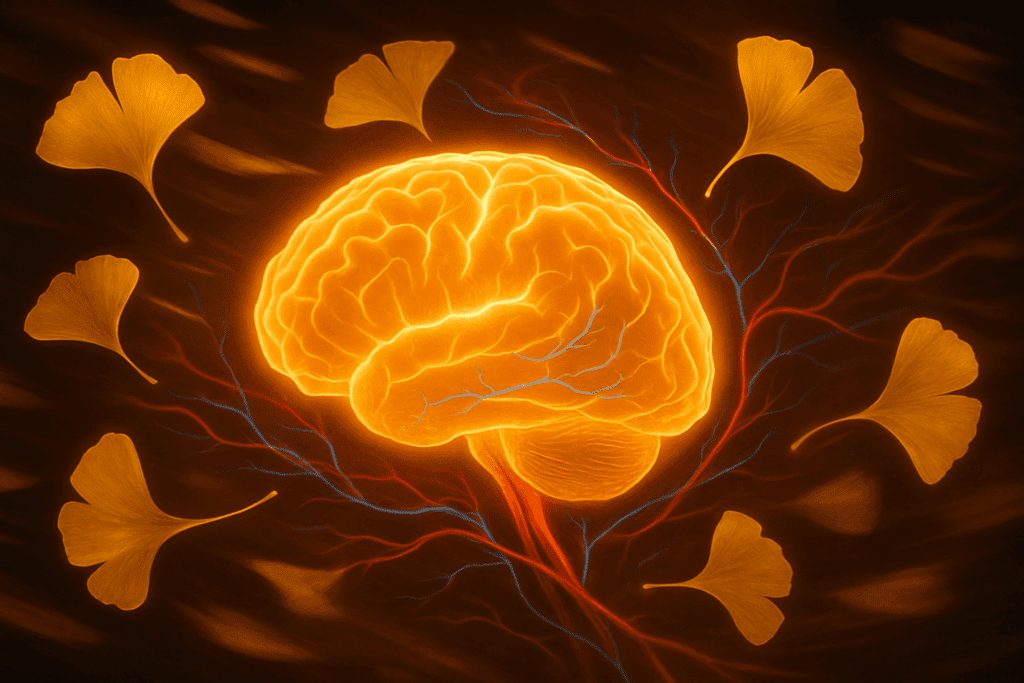
Rhodiola Rosea: Combatting Cognitive Fatigue and Emotional Dysregulation
Rhodiola rosea, a hardy adaptogenic herb native to cold mountainous regions, has gained recognition for its ability to enhance mental resilience, combat fatigue, and support emotional stability. For individuals with ADHD, who often experience mental exhaustion, emotional volatility, and poor stress tolerance, Rhodiola may offer meaningful benefits.
Research has shown that Rhodiola can modulate the hypothalamic-pituitary-adrenal (HPA) axis, leading to improved stress adaptation and reduced cortisol levels. Additionally, Rhodiola has been found to enhance serotonin and dopamine activity, neurotransmitters crucial for mood regulation and attentional processes. These effects position Rhodiola as a potent natural mind booster capable of supporting cognitive and emotional well-being in ADHD populations. Its relatively rapid onset of action and favorable safety profile further enhance its appeal as part of an integrative approach to ADHD management.
Panax Ginseng: A Traditional Brain Booster for Modern Cognitive Challenges
Panax ginseng, also known as Korean ginseng, has long been celebrated in traditional Asian medicine for its revitalizing and cognitive-enhancing properties. Modern research supports many of these traditional claims, highlighting Ginseng’s potential to enhance working memory, mental clarity, and sustained attention. These attributes are particularly relevant for individuals with ADHD, who often face persistent challenges in maintaining focus and mental endurance.
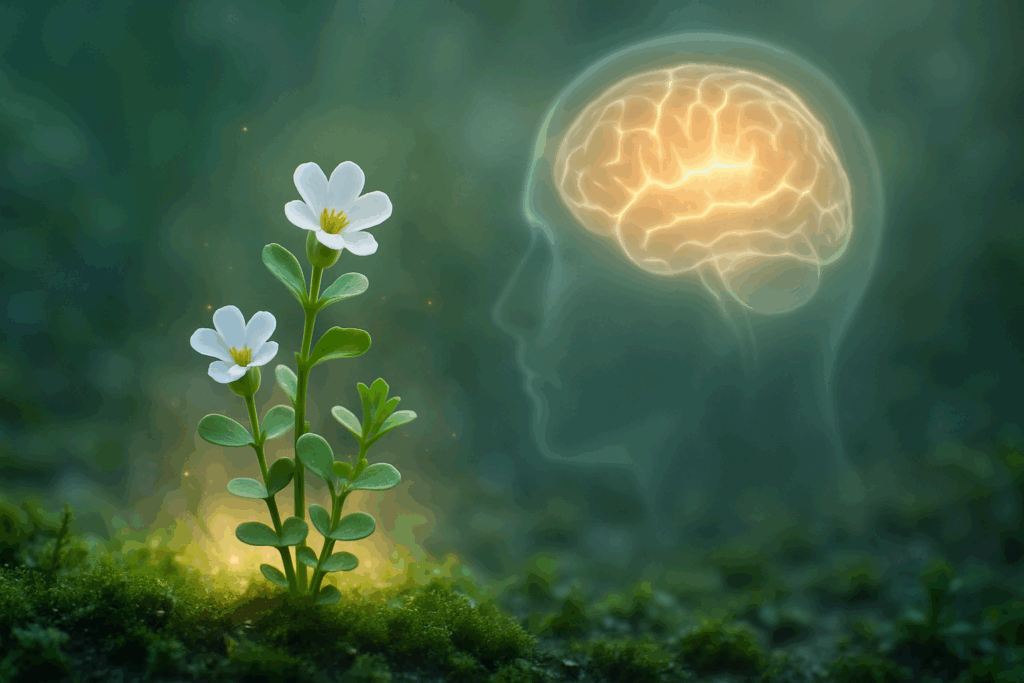
The active compounds in Ginseng, known as ginsenosides, exert diverse neuroprotective effects, including the modulation of neurotransmitter systems, promotion of neurogenesis, and reduction of oxidative stress. Clinical trials have demonstrated that Ginseng supplementation can lead to significant improvements in cognitive performance, particularly in tasks requiring sustained mental effort. As a brain booster, Panax ginseng offers a holistic approach to enhancing cognitive resilience, emotional balance, and energy regulation, aligning closely with the multifaceted needs of individuals managing ADHD.
Gotu Kola: Supporting Neuroplasticity and Cognitive Calm
Gotu kola, a staple herb in Ayurvedic and traditional Chinese medicine, is renowned for its rejuvenating effects on the mind and nervous system. Scientific investigations have revealed that Gotu kola enhances neuroplasticity, supports healthy blood circulation to the brain, and promotes a calm, focused mental state. These qualities make it a valuable natural mind booster for individuals with ADHD, who often struggle with cognitive rigidity, poor stress management, and attentional fragmentation.
The bioactive compounds in Gotu kola, including triterpenoids such as asiaticoside, have been shown to stimulate the production of brain-derived neurotrophic factor (BDNF), a key molecule involved in learning, memory, and adaptive neuroplasticity. By promoting BDNF expression, Gotu kola may help improve cognitive flexibility and emotional regulation in individuals with ADHD. Furthermore, its anxiolytic properties can provide a sense of mental calmness without sedation, offering a balanced approach to cognitive support.
Integrating Natural Mind Boosters into an ADHD Management Plan
While the herbs discussed above offer promising cognitive and emotional benefits, it is important to emphasize that natural mind boosters should be integrated thoughtfully into a comprehensive ADHD management plan. Herbal interventions are not a substitute for professional medical advice, diagnosis, or evidence-based therapies. Instead, they can serve as complementary strategies that enhance overall cognitive resilience and emotional well-being.
Individuals considering herbal supplementation should consult with qualified healthcare practitioners knowledgeable about botanical medicine and ADHD. Such consultations can help identify potential herb-drug interactions, appropriate dosing protocols, and individualized treatment goals. Moreover, lifestyle interventions such as nutritional optimization, exercise, mindfulness practices, and sleep hygiene are critical components of a holistic approach to ADHD management. When used judiciously, natural mind boosters can play a meaningful role in supporting the cognitive and emotional needs of individuals living with ADHD.
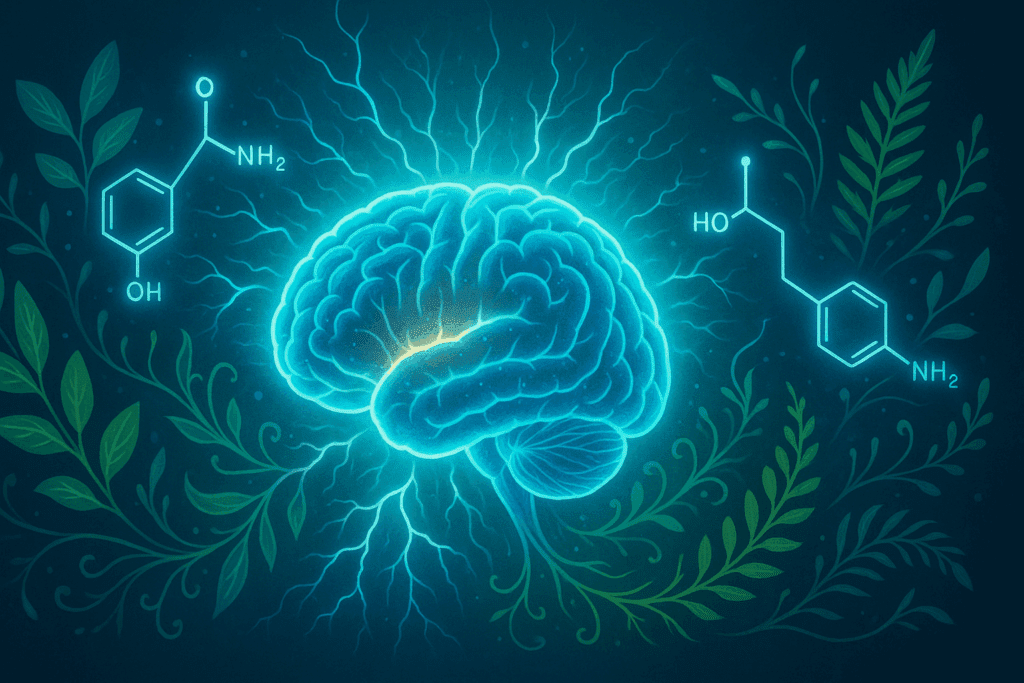
Frequently Asked Questions (FAQ)
1. How do mind boosters like Ginkgo Biloba fit into long-term brain health strategies?
While many view a mind booster as a short-term performance enhancer, integrating natural mind boosters into a daily routine can offer substantial long-term cognitive benefits. Over time, consistent use of a quality brain booster may support neuroplasticity—the brain’s ability to form new neural pathways, which is critical for lifelong learning and memory retention. Experts recommend combining natural mind boosters with lifestyle practices like meditation, skill acquisition, and aerobic exercise for optimal results. Research suggests that using a mind booster strategically during periods of high cognitive demand (such as during exams or major projects) may also encourage resilience to cognitive decline later in life. Instead of relying on quick fixes, think of a brain booster as part of a sustainable mental fitness regimen.
2. Can natural mind boosters enhance creativity, not just focus and memory?
Absolutely. While the traditional emphasis for a mind booster often centers around memory or attention, many natural mind boosters also positively impact divergent thinking—the ability to generate multiple, novel solutions to a problem. For instance, ingredients like Ginkgo Biloba and Lion’s Mane mushroom stimulate brain-derived neurotrophic factor (BDNF), a protein linked to creativity. By encouraging better blood flow, oxygenation, and nerve growth, a natural mind booster can help users break habitual thought patterns and access new ideas more freely. In practice, this makes brain boosters valuable tools not just for students or executives but also for artists, writers, and innovators aiming to unlock their full creative potential.
3. Are there hidden risks to overusing mind boosters or brain boosters?
Although natural mind boosters are generally considered safe when used properly, overreliance without medical guidance could lead to unintended consequences. For instance, excessive dosing of some brain boosters might increase the risk of overstimulation, sleep disruption, or interactions with medications. Furthermore, psychological dependency—where individuals feel they can’t perform mentally without a mind booster—can subtly erode self-confidence and intrinsic cognitive skills. Experts advise users to cycle their use of natural mind boosters, taking periodic breaks to allow the brain’s natural processes to recalibrate. This approach fosters both safety and long-term efficacy while minimizing dependency risks.
4. How does the timing of natural mind booster use affect results?
Timing can significantly influence how effective a mind booster or brain booster is. For optimal impact, natural mind boosters like Ginkgo Biloba should be taken earlier in the day, ideally 30 to 60 minutes before mentally demanding tasks. This ensures the ingredients have sufficient time to circulate and activate cognitive benefits when needed most. Moreover, using a mind booster consistently at the same time each day may help “entrain” the brain for peak performance windows, similar to how athletes time their training sessions. Personalized timing based on your chronotype (whether you’re a morning or evening person) can further enhance the brain booster’s effectiveness.
5. What role do diet and nutrition play alongside mind boosters?
Pairing a natural mind booster with the right nutrition can amplify its benefits considerably. Omega-3 fatty acids, flavonoids, and antioxidants found in foods like salmon, blueberries, and dark leafy greens can work synergistically with a brain booster to improve brain cell health and neurotransmitter balance. Moreover, hydration status profoundly affects how well mind boosters work, as even mild dehydration can impair cognitive function. Some experts recommend a “brain optimization stack,” which combines natural mind boosters with a nutrient-dense diet for maximum cognitive support. This holistic strategy ensures the brain receives the chemical building blocks it needs to respond optimally to any natural mind booster.
6. How do natural mind boosters compare to pharmaceutical cognitive enhancers?
Pharmaceutical nootropics like modafinil and Adderall are powerful but come with significant risks, including dependency, cardiovascular strain, and legal restrictions. In contrast, a natural mind booster offers a gentler, safer alternative for those seeking sustainable cognitive support. While pharmaceuticals often deliver an immediate jolt, brain boosters derived from natural ingredients build cumulative benefits over time by enhancing neurovascular health, reducing inflammation, and supporting mitochondrial function. Additionally, natural mind boosters are generally better tolerated and have fewer long-term side effects, making them more suitable for everyday use among health-conscious individuals.
7. Can natural mind boosters like Ginkgo Biloba help with age-related cognitive decline?
Yes, growing research suggests that consistent use of a natural mind booster can be a proactive strategy for mitigating age-related cognitive challenges. Ginkgo Biloba, in particular, has been shown to support microcirculation in the brain, which is crucial as vascular health naturally declines with age. When combined with brain boosters that promote neurogenesis and oxidative stress reduction, individuals may experience slower memory loss progression and better mental sharpness into their later years. It’s important to note, however, that while mind boosters can be beneficial, they are most effective when used as part of a comprehensive brain health program that includes mental stimulation, exercise, and social engagement.
8. Are there emerging trends in natural mind booster development?
One exciting trend is the creation of “personalized nootropic stacks,” where natural mind boosters are customized based on genetic testing, lifestyle factors, and cognitive goals. Companies now offer services that analyze DNA and neurotransmitter profiles to recommend the most compatible brain boosters. Another innovation involves nanotechnology, which enhances the bioavailability of natural mind boosters, allowing for faster and more efficient absorption. As science advances, we’re seeing a move toward adaptogenic blends that not only act as mind boosters but also support emotional resilience and hormonal balance. These tailored approaches mark a new era in how people can safely and effectively optimize their mental performance.
9. How can mindfulness practices enhance the effects of a mind booster?
Pairing mindfulness with a brain booster creates a powerful synergy for cognitive growth. Mindfulness practices like meditation, deep breathing, and mindful movement enhance attention regulation and emotional control—skills that natural mind boosters further support. In fact, preliminary studies suggest that using a mind booster while maintaining a regular mindfulness practice may lead to structural brain changes, such as increased gray matter density in areas related to focus and memory. By grounding the mind, users may be better able to harness the cognitive enhancements provided by natural mind boosters, leading to more consistent, meaningful results over time.
10. What are the social and psychological impacts of relying on mind boosters?
There’s an evolving discussion in psychology and sociology about how society’s growing use of mind boosters may influence perceptions of productivity and self-worth. Some worry that an overemphasis on constant mental optimization could contribute to burnout culture, where individuals feel pressured to be “always on.” On the flip side, responsible, informed use of a natural mind booster can empower users to work smarter rather than harder, promoting better work-life balance. Building a healthy relationship with brain boosters—one rooted in self-care rather than performance obsession—is critical. Experts emphasize that mind boosters should complement, not replace, core habits like rest, creativity, and human connection.
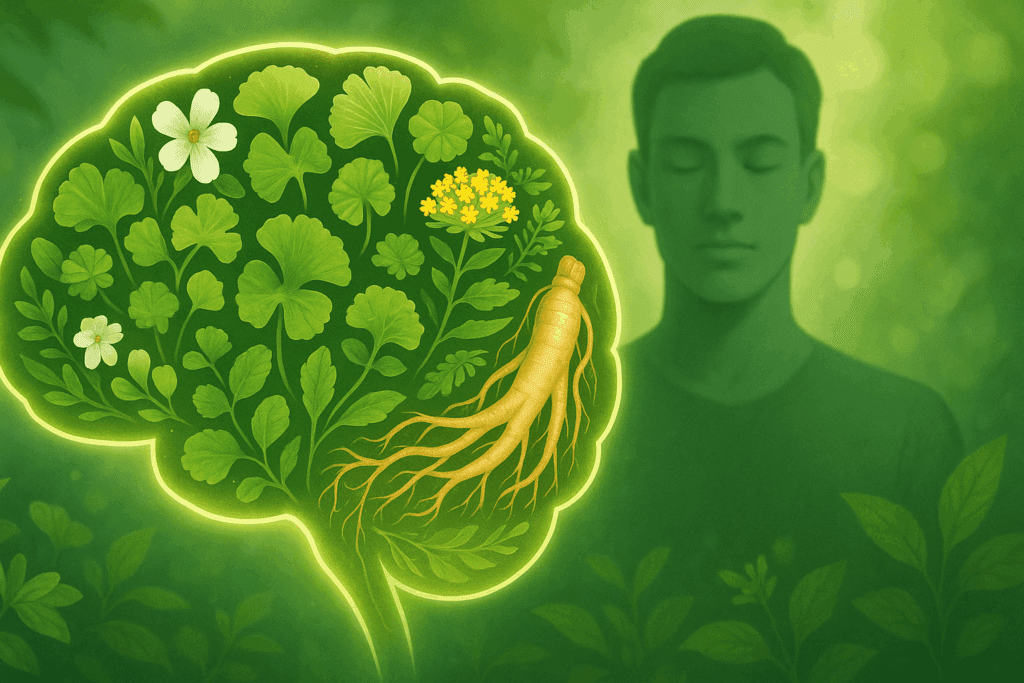
The Role of Diet, Exercise, and Sleep in Enhancing the Effects of Brain Boosters
Incorporating natural mind boosters into a daily routine can yield more pronounced benefits when accompanied by supportive lifestyle habits. Nutritional strategies that emphasize brain-healthy nutrients, such as omega-3 fatty acids, magnesium, zinc, and antioxidant-rich fruits and vegetables, provide the foundational support needed for optimal cognitive functioning. Emerging research highlights the synergistic effects between dietary interventions and herbal cognitive enhancers, suggesting that a nutrient-dense diet can amplify the brain-boosting effects of botanicals.
Regular physical activity also plays a crucial role in promoting cognitive clarity and emotional balance. Exercise has been shown to increase BDNF levels, enhance executive function, and reduce symptoms of inattention and hyperactivity in individuals with ADHD. Combining a structured exercise regimen with the use of natural mind boosters may offer a powerful strategy for enhancing cognitive resilience. Equally important is the role of restorative sleep in consolidating memory, regulating emotional responses, and maintaining attentional control. Sleep hygiene practices such as maintaining a consistent sleep schedule, minimizing screen exposure before bedtime, and creating a calming bedtime routine can further optimize the benefits of herbal cognitive support.
Was this article helpful? Don’t let it stop with you. Share it right now with someone who needs to see it—whether it’s a friend, a colleague, or your whole network. And if staying ahead on this topic matters to you, subscribe to this publication for the most up-to-date information. You’ll get the latest insights delivered straight to you—no searching, no missing out.
Further Reading:
Buffer Your ADHD Brain for Greater Clarity and Focus
Exploring the Benefits of Herbs for ADHD Management
.Important Note: The information contained in this article is for general informational purposes only, and should not be construed as health or medical advice, nor is it intended to diagnose, prevent, treat, or cure any disease or health condition. Before embarking on any diet, fitness regimen, or program of nutritional supplementation, it is advisable to consult your healthcare professional in order to determine its safety and probable efficacy in terms of your individual state of health.
Regarding Nutritional Supplements Or Other Non-Prescription Health Products: If any nutritional supplements or other non-prescription health products are mentioned in the foregoing article, any claims or statements made about them have not been evaluated by the U.S. Food and Drug Administration, and such nutritional supplements or other health products are not intended to diagnose, treat, cure, or prevent any disease.


